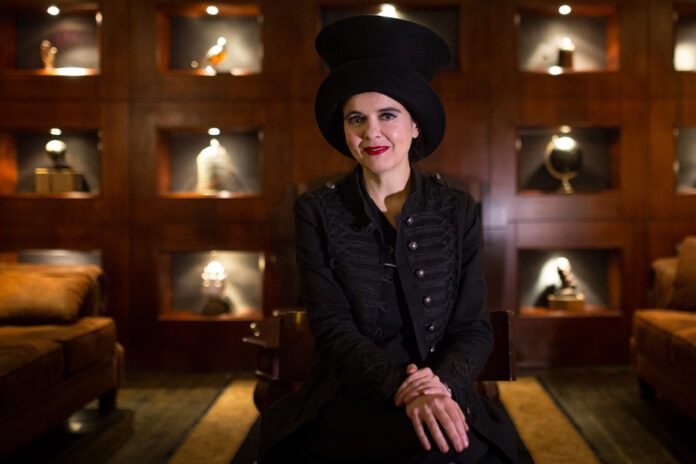(Paris) Between the “unsaid” of a time when rape was taboo and the “over-said”, the Belgian writer Amélie Nothomb seeks and finds her way in her novel, which was published Monday in Canada, which revolves around this crucial episode in his life.
Psychopompe, published by Albin Michel, is the 32nd title of the famous Belgian. Routine ? No, a delicate moment on the contrary.
“I measure it by my anguish. We are on the eve of D-Day and I have never been so anxious,” she told AFP. “I put a lot, a lot of my privacy. I feel like I’m putting myself in danger.”
The rape took place when she was 12, in the late 1970s, in the Indian Ocean off Cox’s Bazar, a beach in Bangladesh where she had gone swimming.
The episode is known. It is told for the first time, in a rather elliptical way, in Biography of Hunger in 2004.
Then, on the occasion of the literary season of August 2017, just before the explosion of the movement
Psychopompe first retraces the cosmopolitan childhood of this daughter of a diplomat. We feel the story of the episode arrive there. It is no longer through hunger and food that he is approached, but through that of a passion for birds, born at 11 years old and which has never wavered.
“I think the bird came just in time and it was a prophecy. That the motif of the bird had foreseen that I would have to go to the side of the Underworld and then come back one day”, confides the writer.
This Christ motif had come close to earning him the Goncourt 2019 prize for Soif. But Amélie Nothomb is not Christian: her syncretism mixes the Shintoism of her early Japanese childhood, an extensive knowledge of Greek mythology and a natural attraction to multiple cosmogonies…including that of the West, Darwinian, which says that birds are descended from a dinosaur having made the crazy bet of flapping its arms to leave the floor.
Writing, for her, was one too. “My parents consider writers to be the absolute elite of humanity,” she points out. “If writers are such gods, in the name of what dare I venture into these parts? »
The question did not leave her. Amélie Nothomb counts that Psychopompe is the 105th novel she has written, but only the 32nd she has published. More than 70, too weak for his taste, will remain in limbo.
The one appearing this fall has something as essential as some of his best-selling autobiographical stories, Stupeurs et tremors (Grand Prix du roman de l’Académie française 1999), about his failed return to Japan, or Premier sang (Prix Renaudot 2021), on his father.
When it came to writing the dramatic scene that splits the book in two, “it came out of the blue because I wanted to get it over with. So I gritted my teeth and went.”
Her mother fetches young Fabienne (her real first name) from the ocean, brings her back to the beach and blurts out: “Poor little one”. Then no one talks about it.
“It was a different time. Today, we are in that of the over-said, which is not better, ”she comments. “We were really in the era of the unsaid. So they saw, and all they showed was colossal embarrassment.”
At the end of a serious anorexia and dark years, she will live again. But then, writes the narrator, “the dead one was the me before.”
The novel appears Wednesday in France, Belgium and Switzerland. It has been published since Monday in Canada.















